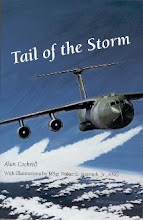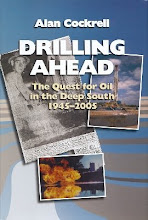(Continued from last post)
We had just leveled off at our first planned altitude of FL 280. As we burned down fuel we would incrementally increase our altitude up to FL 360 (with of course the permission of whichever controlling sector we were in). We had just bade sweet dreams to the relief pilot, who went back to take the first break. With the 767 pointed south and Sao Paulo 9 ½ hours in our future, I got out my company I-Pad to read up on the latest changes to the “pubs” (publications).
When the I-Pad fired-up, a picture of my hoped-for RV-6 burst onto the screen. As soon as I wiped it away and opened the content locker, Wes, the guy in the right seat said, “Wait! What was that plane on your I-Pad?”
I went to the post office and paid for “next day” service. The postal clerk looked at the address. Delta Junction, Alaska. “It’ll be Monday before it gets there,” he said. (It was Wednesday.)
We had just leveled off at our first planned altitude of FL 280. As we burned down fuel we would incrementally increase our altitude up to FL 360 (with of course the permission of whichever controlling sector we were in). We had just bade sweet dreams to the relief pilot, who went back to take the first break. With the 767 pointed south and Sao Paulo 9 ½ hours in our future, I got out my company I-Pad to read up on the latest changes to the “pubs” (publications).
When the I-Pad fired-up, a picture of my hoped-for RV-6 burst onto the screen. As soon as I wiped it away and opened the content locker, Wes, the guy in the right seat said, “Wait! What was that plane on your I-Pad?”
“It’s a Van’s RV-6. Familiar with it?”
Wes nodded and said, “Some. Tell me about it.”
I told him all I knew about the RV-6, which wasn’t really
much, and went into detail about the trials and challenges I was going through
to get it. He nodded and kept quiet, but intently listened. I didn’t know that
he was reeling me in like trophy fish.
Wes was actually older than me—unusual for a first
officer. He was due to retire in a few months. A retired USAF colonel, he had
joined the airline 14 years ago after a zipping career flying F-16s and as a
T-38 instructor pilot.
When I finished telling him all I knew about the “Six” he
came clean. Wes was a nationally recognized RV expert. He had built several
RVs, the models 4, 6, 7 and 8. He had even built for others. He presently owned
an RV-8, which is a
fighter-like tandem cockpit model. Such was his expertise
on the RV line of aircraft that he owned a business selling DVDs that showcased
his RV building and operating techniques.
 |
| RV-8 |
Wow! I had hit the jackpot. I had so many questions to
ask him I wasn’t sure the long flight down to GRU and back, and the 36 hour
layover, contained enough time for them. Wes was delighted to be paired with a
captain who shared his interest and he dove into the guts of RV ownership. Like
a hungry dog I devoured every word.
I handed my I-Pad over to him and he began scrolling
through the pics I had taken on my first trip to Tucson to see the plane. He
bragged on its clean, sleek appearance, but then I cringed when he uttered, “Uh
oh!”
He pointed to the tail wheel assembly. “You’ve got a
rocket rod. Get rid of that before you fly it!”
“Rocket rod?” I said. “What’s that?”
The rocket rod was a modification to the original design.
Wes
went into a long discourse. “The closest time in my entire career that I
came to crashing was flying an RV with that modification. It’s a bear to land the
plane in a stiff crosswind with that.” He looked over at me. “Get rid of it.
Get some original tail wheel parts from Van’s. Take them with you to Tucson and
change them out.”
I was astounded. What if I had never met Wes? Would
I have been flying a booby-trapped plane? I made plans to get the parts and took
in all Wes had to say.
Fast forward a week. I’m sitting in the pilot lounge when
an old friend, an ex-Navy Hornet driver named Karl drops by. Karl is in the
process of building an RV-8. He asks to see my pictures and I open the I-Pad.
He grins. “Beau-ti-ful!” he says. Congrats! You’re gonna love that!” Then he
frowns. “Uh oh! You’ve got a rocket rod! I’d get rid of that.”
Karl reiterates what I already had been told and offers
me a spare set of chains and springs to make the conversion back to the
original design. I gratefully accept and he sends them to me in a few days.
Meanwhile, after calling a number of A&Ps in Tucson (licensed
airframe & powerplant mechanics) I finally got a lead on one who could do
the job. His fee was $500. But his experience with experimental aircraft was
limited. At that point I was desperate for help. I booked him for July 8th.
Hopefully, he could complete the inspection that day, sign the plane off, and I
could arrange to fly with an instructor (or at least someone familiar with the
plane) the next day.
My luck with that search was good. I connected with Phil,
an Alaskan Airlines pilot who lived on the same airfield that Dave was on and owned
an RV-6A. The difference was, his had a nosewheel rather than a tailwheel, but
he explained that he had much experience in tailwheel aircraft and, for
$50/hour he would check me out in my RV.
Whenever I thought about it, the words “my RV” seemed fleeting.
It wasn’t my RV yet. I had only told an implusive, unpredictable, eccentric
woman that I would buy it as soon as I got the cash together, and even then I had
spoken through a third party (Dave). That’s all I had! I really didn’t have a
plane at all. I feared I was chasing the wild goose, or maybe even a pig in a
poke.
When I wasn’t thinking about that, I was pondering the
tailwheel situation. I had not flown a tailwheel plane in years. I knew they
were squirrelly and hard to handle. I remembered the embarrassing time I was
checking out in the Mississippi Civil Air Patrol’s O-1 Bird Dog.
The O-1 is a Viet Nam era forward air controller plane
with a
tailwheel. My instructor in the back seat weighed nearly 300 pounds. I
couldn’t understand why I couldn’t land that airplane. Every time the tailwheel
touched down hell broke loose. We swerved side to side, each swerve getting
more violent than the first until the speed got low enough to bring it under
control.
 |
| O-1 (USAF), L-19 (Army) "Bird Dog" |
We went over to Jackson’s big airport to practice, where
the runways were long and wide. With a crosswind blowing and the big man in
back I precisely flared the Bird Dog to a gentle 3-point landing, at which the world
outside the windshield went dizzily wild. The control tower, hangars and passenger terminal
whirled so violently it all blurred. The left wing went down dangerously close
to the tarmac and the plane pivoted around its left landing gear 360 degrees or
more before coming to a wing-rocking stop.
We both sat there trembling when the control tower came
on the radio and in a calm voice said, “Bet that was a fun ride!”
I never did check out in that Bird Dog. My instructor was
just too heavy. His weight moved the center-of-gravity so far aft that
controlling the plane would have been a challenge for the most experienced combat veteran O-1
pilot.
Think about it this way: Ever pushed a tricycle
backwards? (Think, single wheel in back, like a tailwheel plane.) It goes
anywhere but where you want it to go. But push it frontwards (single wheel in
front, a la nosewheel aircraft), it glides smoothly straight ahead because the
center-of-gravity is forward of the main wheels, not aft. Despite its inherent
unsteadiness on the ground the tailwheel airplane is still popular because it looks sleek and
is generally faster because a nosewheel does not stick down into the wind.
All this weighed on my mind as I made more arrangements. The
plane needed a pitot-static re-certification. Several shops in Tucson can do
this but the one I wanted, recommended to me by Phil, (owned by a guy named Juan) was the cheapest ($295) and wouldn’t return my calls. I needed to schedule the check on
July 9th after I had (hopefully) gotten familiar enough with the
plane to fly it over to Ryan Field where Juan did business.
But at least I was making progress. The loan came through and I
rushed to the bank to get a cashier’s check made out to the widow. I downloaded
and printed a standard aircraft bill-of-sale and filled it out. It only needed
her signature. I called Dave in Alaska. He said, “Express mail it immediately.”
I went to the post office and paid for “next day” service. The postal clerk looked at the address. Delta Junction, Alaska. “It’ll be Monday before it gets there,” he said. (It was Wednesday.)
“But what about next
day?” I demanded.
He chuckled and shrugged. “It’s Alaska, man!”
I texted Dave, knowing that while he was hunting or
fishing he rarely tended e-mail or texting, but the response was quick. “Perfect!
I’ll be back in town Monday. I’ll go see her then.”
I just hoped she would still be there.
(Continued next post)






Did you neglect to post part III or just mislabel this post as Part IV?
ReplyDeleteIt's a lovely looking airplane - the sort that looks like it's doing 200kts when it's standing still!!
ReplyDeleteOops. Correction made. Thanks.
ReplyDeleteI'm loving this tale. Encountering your new best friend, ("Wes, the RV expert) is another wonderful bonus in working for such a small, intimate company. Ha ha! Same uniform, same SOPs and you could fly entire careers without encountering each other! And Part IV ought to wind this up. I hope that the RV6, with the 'proper' tail wheel assembly, carries you home, but if not, something suitable will. Eventually. I'm enjoying the tale, but with four parts, I too thk your tail wheel is over extended. Happy Landings, -C.
ReplyDelete